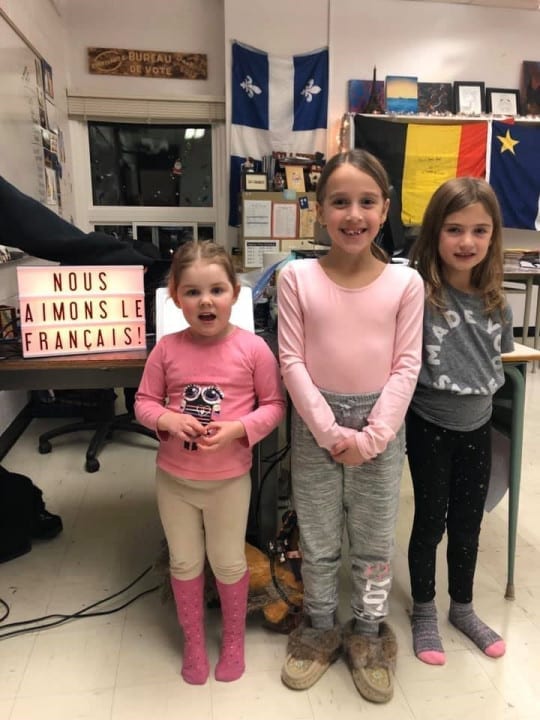Are you looking to find out more about CPF Saskatchewan? Do you have newsworthy item to share about us?
To request an interview or obtain additional information, contact Brooklyn Barré, the Admin & Communications Officer at cpf.sk.comm@sasktel.net.
In the meantime, we’ve put together key information that summarizes our work and vision:

CPF Facts
Canadian Parents for French (CPF) is a nationwide, research-informed, volunteer organization that furthers bilingualism by promoting and creating opportunities to learn and to use French for all those who call Canada home.
- CPF was founded in 1977 by a dedicated group of parents who wanted French as a second language (FSL) learning opportunities for their children;
- Keith Spicer, Canada’s first Commissioner of Official Languages, helped found the organization;
- CPF is Canada’s largest non-francophone organization promoting FSL;
- CPF has a National office, 11 provincial branches and offices, 145 local chapters, 2,000 volunteers and 25,000 members;
- CPF believes the ability to communicate in both official languages fosters creative, empathetic and open-minded citizens;
- CPF believes that knowing both official languages opens the door to far-reaching opportunities and enhances Canada’s social and economic prosperity;
- CPF informs and influences all levels of government and education stakeholders; and
- CPF provides youth and parents across the country with a variety of targeted activities.
The French Second Language (FSL) Landscape Today
Our two official languages are an essential tool for the inclusion and integration of all Canadians into our diverse society. FSL education in Canada is supported through Official Language in Education Agreements between the Federal and Provincial/Territorial Governments.
- 84 % of Canadians are in favour of bilingualism (2016 OCOL Survey);
- 2015-16 marked the 50th anniversary of French Immersion;
- French Immersion enrolment has grown from 30 students in St-Lambert, QC to over 443,390 annually across Canada (2018-2019);
- Over 1.3 million students were enrolled in a FSL program in Canada in the 2018-19 school year;
- FSL education is so popular that today more non-Francophones in Canada speak French than there are native Francophones;
- Millions of Canadians now speak French as a result of the federal and provincial governments’ commitment to official languages;
- Canadians have embraced our two official languages whether their mother tongue is French, English or one of hundreds of other languages;
- 2019 marked the 50th Anniversary of the Official Languages Act. All federal political parties have agreed to modernize the existing Act to better reflect today’s diverse Canadian society; and
- CPF supports the modernization of the Act. Setting out an overarching vision within a modernized Official Languages Act will ensure all Canadians have the opportunity to learn their second official language. It also affirms the benefits of a bilingual and multilingual Canada.
Our Expectations
We expect our elected officials to champion and promote official language bilingualism and linguistic duality. We believe this reinforces our Canadian identity and that second official language education benefits all Canadians.
- Every Canadian who wishes to learn the other official language should be able to do so;
- Bilingualism and bilingual Canadians provide us with a major economic advantage, making a difference for the Canadian economy in global markets;
- Linguistic duality and our two official languages are an integral part of the Canadian identity and a fundamental value of our country; and
- Modernizing the Official Languages Act is a timely opportunity to making it more inclusive, thereby better meeting the needs of today’s diverse Canadian society and responding to the increased demand for FSL learning programs across the country.
Spokespeople
Our primary spokesperson is the President of our Board of Directors, as a part of our Media Relations subcommittee.
As ours is a volunteer-run board, we ask kindly that you attempt to give us as much notice as possible when requesting media interviews. 12 to 24 hours would be optimal, but even 4-5 would be greatly appreciated.
We understand the urgent nature of most media interviews, and we would like to respond in a timely manner. Please inform us of your timeline and deadlines upon contacting us.
